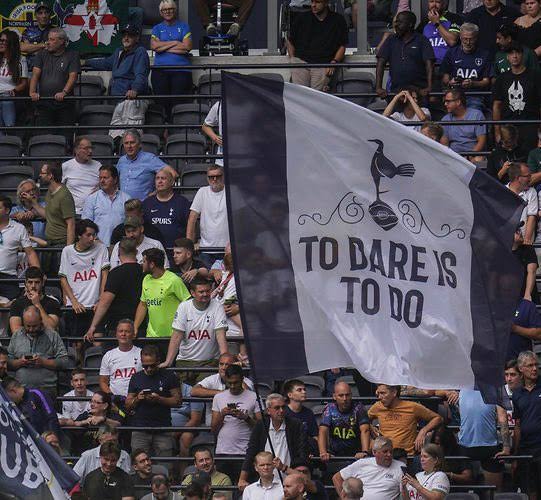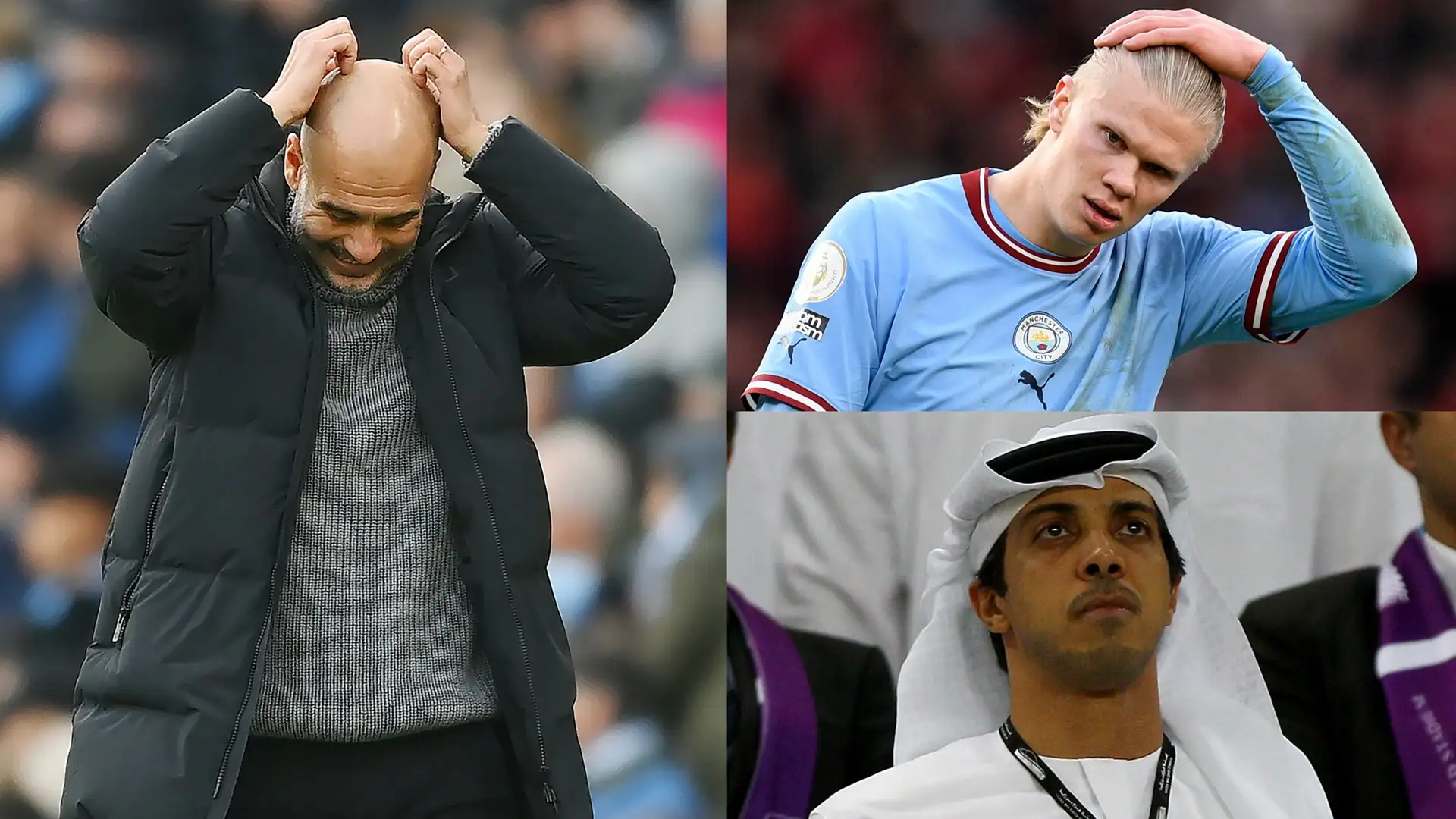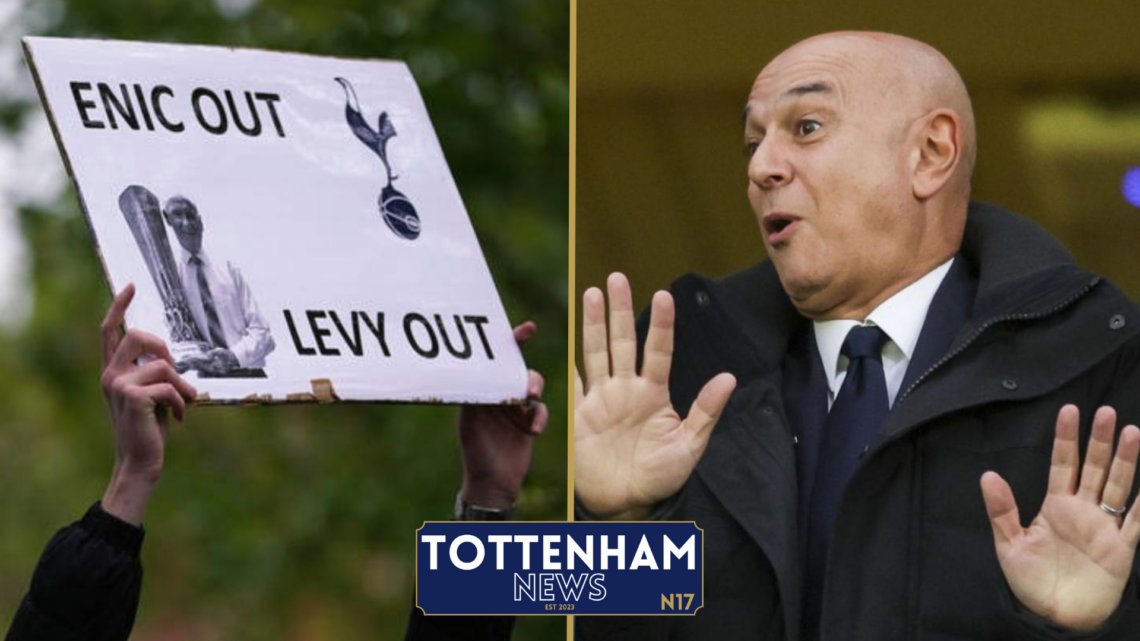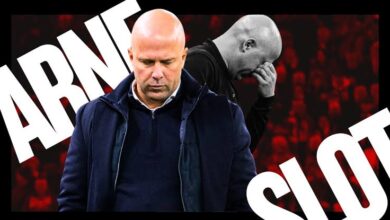£8.5bn Tottenham part-takeover twist as Daniel Levy ally Florentino Perez makes official announcement
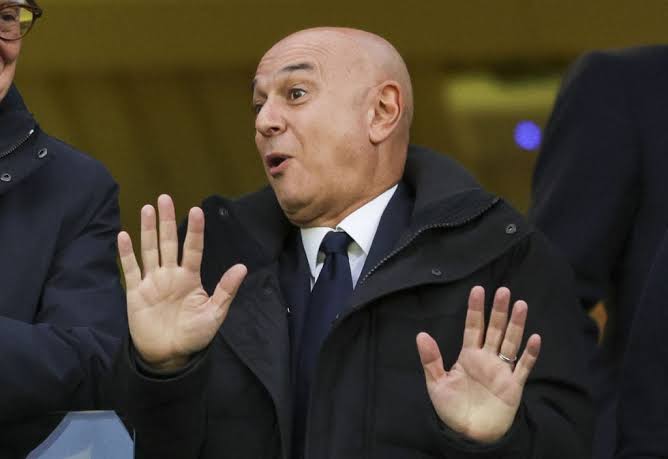
Tottenham Hotspur Football Club has long been a prominent fixture in English football. However, under the stewardship of chairman Daniel Levy, the club has also become a symbol of both ambition and frustration. Levy has played a central role in Tottenham’s recent successes, but his leadership has often been met with criticism, particularly due to the club’s inability to win major trophies. This, combined with ongoing issues regarding ownership and investment, has put the future of the club in question. One key aspect of Tottenham’s current situation is its search for new investors, with Levy himself owning a significant stake in the club, while also considering the possibility of selling minority shares. However, a new development, involving Real Madrid’s president Florentino Pérez, could complicate matters for Levy and Tottenham.
Daniel Levy’s tenure as chairman of Tottenham Hotspur has been marked by several transformative moments. Since he assumed control of the club in 2001, Levy has overseen the construction of the state-of-the-art Tottenham Hotspur Stadium and managed to bring the club into the modern footballing age. His leadership has allowed Tottenham to become a financially stable club with revenues of around £550 million annually. However, this financial success has not been matched by similar success on the field, as Tottenham has struggled to win major domestic or international trophies.
Levy, who holds a 29% stake in the club, has found himself at the center of fan protests and criticism. While the club has consistently finished in the upper echelons of the Premier League, it has often faltered at critical moments in cup competitions, leading to widespread frustration among supporters. Many feel that while Levy has made the club financially viable, he has failed to take Tottenham to the next level in terms of sporting achievement.
One of Levy’s main objectives in recent years has been securing fresh investment for the club. While Tottenham has experienced financial growth under Levy’s leadership, the chairman himself has been open about seeking minority investment to help take the club to the next stage. This push for investment became public in April 2024, when Levy confirmed that he had been actively seeking partners for Tottenham. The search for new investment is driven by a variety of factors, including the desire to increase Tottenham’s financial muscle and to bring in the expertise and resources necessary to elevate the club to a more competitive level, particularly in European football.
Despite Levy’s desire to bring in new investors, the specifics of the deal remain unclear. It is not known how much of the club Levy is willing to sell, but it appears that the search is for minority investment rather than a full takeover. This has made it difficult to gauge the future ownership structure of Tottenham, and the lack of clarity has led to speculation about the potential parties involved in any potential investment.
In an effort to facilitate the search for investment, Tottenham enlisted the services of the prestigious Rothschild bank. The bank’s role was to help the club identify potential buyers and investors who could offer the capital and expertise needed to push Tottenham into the elite tier of European football. However, while the involvement of Rothschild has helped bring attention to the investment opportunity at Tottenham, the results have been somewhat disappointing. To date, the only known group to have engaged in discussions with the club is Amanda Staveley’s PCP Capital Partners, though it is unclear whether those talks will lead to a deal.
The situation is complicated by the competitive nature of the Premier League, where several clubs are also looking for investment. Everton, for example, has recently completed a takeover under American businessman Dan Friedkin, while other clubs like West Ham United, Wolverhampton Wanderers, Brentford, Bournemouth, and Crystal Palace are all engaged in talks to sell minority stakes. For Tottenham, this increased competition for investment has added another layer of complexity to their search for new financial backing. Clubs that have more established commercial ventures or more successful on-field performances may find it easier to secure investors, making Tottenham’s pursuit of new partners a more challenging prospect.
One of the key reasons why Tottenham has struggled to secure investment and take the next step in its development is its poor performance on the pitch in recent times. Under the management of Ange Postecoglou, the team has faced a string of disappointing results, including a six-match winless streak in the Premier League. Tottenham’s defeat to Everton in January 2025 was particularly worrying, as it highlighted a lack of form and consistency within the squad. These results have done little to alleviate the growing sense of frustration among supporters and have raised questions about the future of the club.
Despite this, Postecoglou has not faced the same level of pressure as many managers would under similar circumstances. This may be due to the broader challenges facing the club, as well as the belief that Postecoglou is working with limited resources. However, it is clear that Levy’s focus is increasingly on the business side of things, rather than the footballing side. Fans have long criticized Levy for his lack of investment in the squad and his perceived failure to back managers with the necessary resources to compete at the highest level. The fact that the manager, despite a poor run of results, is still in charge highlights Levy’s commitment to long-term planning, but it also reflects the broader challenges Tottenham faces in both the footballing and financial arenas.
Levy’s position at the club has made him a lightning rod for criticism. As the public face of Tottenham, Levy has been the subject of derisive chants from fans and has become increasingly unpopular among a portion of the club’s supporters. Many feel that Levy has been more focused on financial gain than sporting success, and this has led to an erosion of trust between the club’s leadership and its fanbase. In a sport where trophies are the ultimate measure of success, Tottenham’s failure to win a major title during Levy’s tenure has led many to question whether he is the right person to take the club forward
While Daniel Levy is seeking fresh investment, another powerful figure in European football, Florentino Pérez, president of Real Madrid, could complicate matters. Pérez is one of the most influential and powerful figures in global football, having presided over Real Madrid for two separate terms. Under his leadership, Real Madrid has achieved enormous financial and sporting success, including winning multiple UEFA Champions League titles.
The relationship between Levy and Pérez is an interesting one. The two men are well-acquainted, having worked together on the European Super League project. They have also engaged in negotiations over high-profile player transfers, such as the sales of Luka Modrić and Gareth Bale to Real Madrid. While their professional relationship is reportedly strong, Pérez’s ambitions for Real Madrid may present an obstacle for Levy as he seeks investment for Tottenham.
In November 2024, it was revealed that Pérez had launched a re-election campaign for a fifth term as president of Real Madrid. A key part of his manifesto involved opening the club to outside investment, which could have serious implications for Tottenham’s own quest for investment. Pérez is seeking to bring in private investment to strengthen Real Madrid’s financial position, which could make it more attractive to investors looking for a high-profile, low-risk opportunity.
The issue for Levy is that Real Madrid, with its guaranteed participation in the UEFA Champions League, is seen as a much safer investment than Tottenham. Real Madrid’s financial stability, combined with its historical success, makes it a much more appealing proposition for investors looking for guaranteed returns. In contrast, Tottenham has struggled to qualify for the Champions League consistently, which makes it a less attractive investment opportunity in comparison.
Kieran Maguire, a football finance lecturer at Liverpool University and author of “The Price of Football,” suggests that Real Madrid offers a much more secure investment than Tottenham, particularly for those looking for lower-risk ventures. He points out that Real Madrid’s financial position, combined with its guaranteed participation in the Champions League, makes it a more predictable investment opportunity. While he acknowledges that Tottenham has potential upside, he argues that Real Madrid’s international appeal makes it a more attractive option for investors.
Pérez’s re-election could also open the door for further investment in Real Madrid, further intensifying the competition for investors. Given that only a handful of elite football clubs are ever in a position to sell equity, the presence of Real Madrid as a potential target for investment could make it more difficult for Tottenham to secure the backing it seeks.
While the situation with Real Madrid presents a challenge for Levy, another development in European football could work in Tottenham’s favor. Ligue 1, France’s top football division, is currently facing a financial crisis. The league’s television rights deal, which is the primary source of income for its clubs, has been drastically overestimated, leading to significant financial instability.
The situation in Ligue 1 became particularly dire in the summer of 2024 when the league was forced to secure a new broadcasting deal for the 2024-25 season. Unfortunately for Ligue 1, the deal was worth far less than expected, with the total value of the deal falling to less than half of the £1 billion originally anticipated. To make matters worse, the primary broadcaster, DAZN, has reportedly sought to revise the deal downward, reducing its value to less than £340 million.
The financial crisis in Ligue 1 has had a ripple effect on the clubs involved, with many owners looking to sell or reduce their stakes in French football. If this trend continues, it could lead to a wave of investment from clubs outside France, potentially increasing the pool of investors available to Tottenham. With Ligue 1 in turmoil, there may be a greater focus on clubs in more financially stable leagues, such as the Premier League. This could lead to an influx of investment into clubs like Tottenham, particularly if investors are seeking to diversify their portfolios outside of French football.
As Daniel Levy continues his search for new investment in Tottenham Hotspur, the club finds itself at a crossroads. Levy’s leadership has brought the club financial stability, but Tottenham’s lack of success on the pitch has led to growing frustration among fans. While Levy has made efforts to find new investors, his position is complicated by the increasing competition for investment, particularly from Real Madrid and other top clubs.
The financial difficulties faced by Ligue 1 could offer a potential avenue for investment in Tottenham, but the situation remains uncertain. Ultimately, the future of Tottenham’s ownership and its financial backing depends on a variety of factors, including the club’s ability to secure new investors, its performance on the pitch, and the broader financial landscape of European football.
For Levy, the road ahead will require careful navigation. As Tottenham looks to secure new investment and a brighter future, the influence of figures like Florentino Pérez and the changing dynamics of European football will undoubtedly play a role in shaping the club’s destiny.
